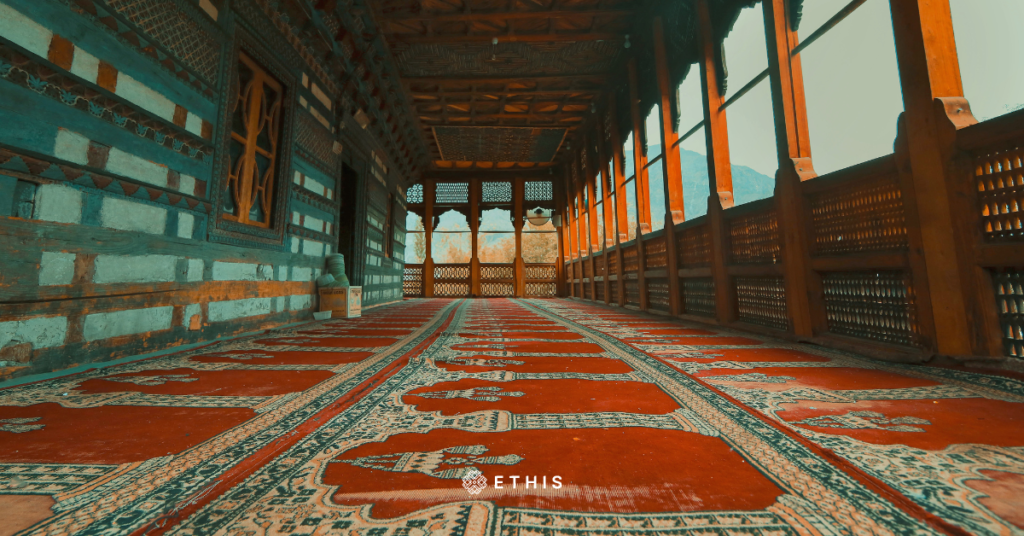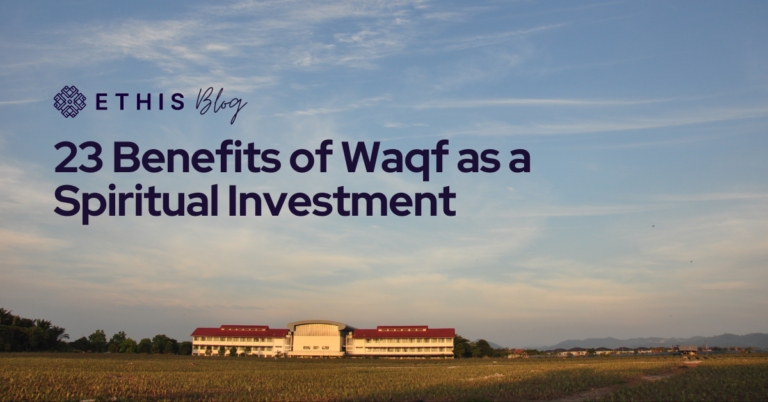
As described in the magnificent Quran and shown by the life of Muhammad ﷺ, Islam is a comprehensive way of life founded on submission to Allah. It is both a way of life and religion, and it is concerned with the salvation of human beings, both in this world and in the next. It takes into account all of the facets of human existence on their whole. It not only directs the private lives of individuals but also their collective existence as essential components of the society in which they are embedded.
Islam is for all humanity, throughout all eras, and affirms the equality of all persons while attempting to satisfy their fundamental needs. To accomplish all of this, the society relies on the state to activate specific institutional mechanisms in conjunction with the voluntary initiatives of its members. In addition, it urges Muslims to fear Allah’s retribution in all circumstances and to obey Allah. Among the voluntary actions that Islam encourages is the institution of Waqf.
Related: Waqf for Poverty Alleviation
Financing the needs of Muslim Communities


The needs that require financing by the community can vary depending on the town’s development history and the amenities offered by the state in which it is located. Therefore, the community’s ability to meet its demands entirely depends on its citizens’ voluntary efforts. The community must rely on voluntary contributions and fund-raising initiatives to meet the expense of whatever activities they may want to engage in because the beneficiaries of zakat are limited.
The needs of Muslim communities:
- Mosques
- Educational institutions (from pre-school to university level)
- Cemeteries
- Da’wah material
- Adult education
- Training and research
- Counseling
- Health care
- Senior citizens care
- Homes for orphans and abused women and children
- Rehabilitation of prisoners
- Interest-free investments
- Credit
- Insurance products and services
- Halal food
- Employment
- Entertainment
- Recreation
- Sporting facilities
- Mass communication
Furthermore, the advantages of creating a waqf and the functions performed by awqaf cannot be reduced to a simple calculation of their monetary worth alone. InshaAllah, the poor and disadvantaged people in general, as well as the entire nation, and the Muslim ummah as a whole, would all gain from this.
Giving something as a waqf is analogous to making a “beautiful loan” (qard hassan) to Allah for the purpose of gaining His pleasure. The one who gives is repaid in a variety of ways by Allah. It is a monetary contribution, about which the Prophet ﷺ is reported to have said, “will bring great reward to you.” It is a sadaqa jariya that will bring thawaab continuously until the day of Qiyama. GlobalSadaqah, the charity platform under Ethis Group, also current runs campaigns that offer qard hassan to beneficiaries
A further advantage of establishing a waqf is that it entitles the donor to the reward for the collective good that will result from the waqf’s operation, which will be distributed to all those who benefit from it.
It is mentioned in the Holy Qur’an: “But those who give away their wealth out of genuine desire to please Allah, and out of their own inner certainty, are like a garden on a hillside. When heavy rain falls upon it, it yields up twice its normal produce. If no heavy rain falls on it, then a light drizzle will suffice, Allah sees all that you do.” [Surah Baqarah, V 265]



Therefore, the waqf has various advantages and benefits, and you, as an individual, professional, or corporation, can contribute to establishing a major new initiative.
Related: The Role of Waqf in Healthcare
Benefits of establishing a Waqf


1. The revival of a Sunnah practice. “He who revives an unpractised Sunnah will get the reward of a hundred martyrs” (Mishkaat)
2. Thawaab Jariyya—continuous Thawaab until Qiyamah.
- The Prophet ﷺ is reported to have said: “Verily charity appeases the wrath of the Lord and removes pangs of death.” [Tirmizi]
4. Generosity purifies and rejuvenates the soul of the giver while also consoling and assisting those who are less fortunate.
5. A closer relationship between Allah and the contributor can be achieved through acts of kindness. It encourages love, cooperation, and the general well-being of all members of the community.
6. Not only does generosity lead to an increase in rewards, but it also leads to an increase in wealth.
7. Acts of charity reawaken a compassionate disposition in people. It deepens the human bond with those who are less fortunate, as well as the ties of humanity and brotherhood that bind us all together.
8. The establishment of shariah, a sunnah, and practice followed by the Sahabah.
- Establishing a large and impactful social welfare institution that is accessible over the long run.
10. Creating and maintaining on long-term basis projects that are supported financially by awqaf funds.
11. Fostering a cohesive and productive environment among various parties.
12. Fostering independence and a sense of self-reliance.
- Building the community’s self-worth and pride.
14. Increasing the significance of da’wah.
15. Making a contribution toward the reduction of poverty.
16. The cultivation of leadership through the implementation of projects at the grassroots level.
17. Giving support to underprivileged, Muslim, and other underserved communities.
18. Making progress toward developing into a community that is self-sufficient, influential, and charitable.
19. Contributing to your country’s progress and development.
20. Leaving behind a heritage of which subsequent generations will have every reason to be justifiably proud.
21. Taking advantage of the duas given by those who are unable to provide for themselves.
22. Participating in the creation of history – you are an integral part of a project that will go down in the books of history.
23. Donating in jama’a, like salah in jama’a is better than giving or performing salah individually.
It can therefore be seen that the waqf has numerous advantages and benefits and that you, as an individual, professional, or organisation, can be of assistance in the development of a major new initiative.
There is more to the benefits of establishing a waqf and the functions performed by a waqf than their monetary value alone can convey. Poor and disadvantaged individuals in general as well as the entire nation as a whole and the Muslim ummah will benefit from this, InshaAllah.
Related: Waqf – Islamic Social Finance for Continuous Development





Top Posts
Islamic P2P Crowdfunding Explained
Halal Money Matters: How Muslims Can Balance Deen and Dunya with Smart Islamic Finance
Halal Investments for Singapore Muslims? It’s time for a shake-up in the Islamic Investments scene.
Smart investment for making Halal money
3 Reasons Why Property Crowdfunding is the Smart Investment for You